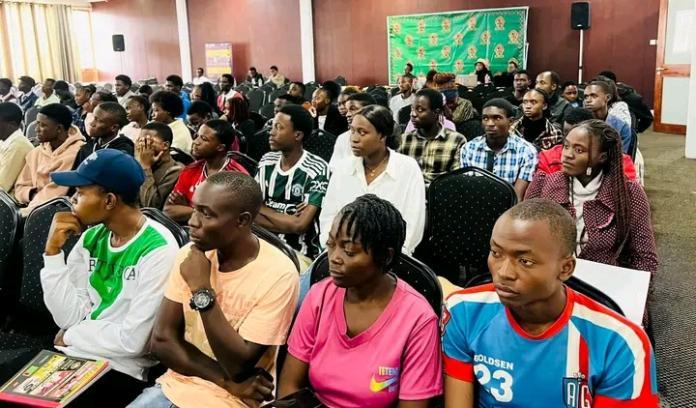Africa-Press – Zambia. It is shocking—unsettling, even—that the UNZASU leadership has welcomed the constitutional amendments without first seeing and critically analyzing the draft. A Constitution is not a piece of cloth to be tailored to the whims of the powerful; it is the foundation upon which justice and democracy stand. To endorse something unseen is not leadership—it is servitude disguised as engagement. The greatest betrayal of intellect is to surrender thought for convenience, to trade inquiry for blind acceptance.
A student body that should be the pulse of political thought is now content with entertainment and shallow slogans. Elections that should be battlegrounds of ideas have become mere spectacles where the loudest, not the wisest, win. Allowances that should be stepping stones toward self-sufficiency have been weaponized into tools of obedience. Now, a constitutional amendment appears—veiled, secretive, its true purpose unknown—and instead of skepticism, we see applause. The political elite have perfected the art of control—not through force, not through open dictatorship, but through manipulation, pacification, and the slow erosion of independent thought.
History whispers its warnings. When rulers amend constitutions in secrecy, when laws are rewritten under the guise of progress, when those in power suddenly claim to be the champions of the very people they have long ignored, beware. The frog in the well believes its world is vast—until the waters dry up. The ox that enjoys its master’s hand does not realize that same hand holds the knife. The greatest illusion of power is to make the oppressed believe they are free. And if the brightest minds of the nation refuse to see through the deception, who then will?
Has it escaped our notice that this same government, which now speaks of youth and women’s empowerment, had every opportunity to uplift them but chose not to? The problem has never been the Constitution—it has been the will of those in power. If they have failed with the current Constitution, what convinces us they will suddenly change with a new one? Confucius warned that when a ruler changes laws without involving the people, he does not seek justice—he seeks control. Are we so naive as to believe that the same government that ignored our struggles will now miraculously deliver us justice?
Education that does not teach one to challenge, to question, to demand accountability is no more than an expensive form of domestication. If a university is no longer a place where minds are sharpened but instead a factory for compliance, then it is no longer an institution of higher learning—it is a breeding ground for servitude. Laozi once said, “To see things in the seed—that is genius.” A true intellectual does not wait for oppression to manifest before speaking out. But what do we see here? A student body so engrossed in trivialities, so distracted by their immediate comforts, that they have lost the ability to perceive danger before it strikes.
The tragedy is not that those in power seek to manipulate the Constitution for their own ends. That is expected. The real tragedy is that the very people who should see through this charade have chosen to be blind. They have not been defeated by oppression; they have surrendered willingly, offering their intellect as a gift to those who seek to rule unchallenged. The price of refusing to think critically is to be ruled by those who prey on ignorance. If this is the caliber of leadership emerging from our universities, then the future of Zambia is not one of democracy, but of quiet submission.
When history looks back at this moment, it will not remember the politicians who engineered this amendment. It will remember the students who let it happen. And when the consequences arrive—when the Constitution no longer protects, when democracy is but a memory, when the voices of the people are drowned by the dictates of the powerful—there will be no one to blame but those who refused to think when it mattered most.
For More News And Analysis About Zambia Follow Africa-Press







